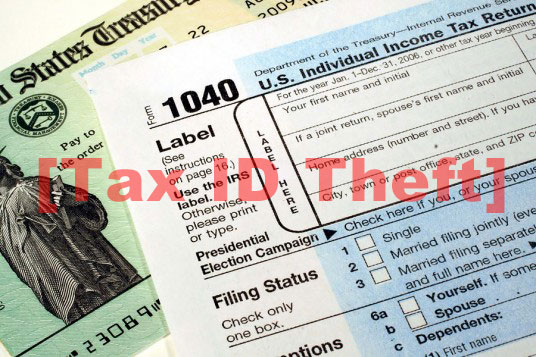Tax season is here, and that doesn’t just mean refunds — it also means an increase in identity theft. In fact, tax identity theft has been constantly increasing over the years with more than 1.6 million taxpayers affected in the first six months of 2013, while 1.2 million were impacted in all of the previous year, according to a TIGTA press release.
Although the numbers have not been released for 2014, the IRS has documented hundreds of tax identity theft cases that occurred throughout the year to help educate taxpayers about how others fall victim to tax fraud. Since tax identity theft is a crime that’s impacting more and more taxpayers, it’s important to understand the risks as well as ways you can protect yourself.
What is tax identity theft?
Tax identity theft occurs when someone files a tax return under someone else’s name in an attempt to get a fraudulent tax refund from the IRS. The worst part is that the victim usually doesn’t know until they attempt to fill out their legitimate return and are told by the IRS one has already been filed in their name. That’s why it’s essential to protect yourself.
How can you protect myself from tax identity theft?
It’s impossible to completely safeguard against tax identity theft, but there are a few simple steps you can take to greatly increase the security of your identity and tax return.
1. Use a reputable company. Whether you’re filing your taxes with an accountant or online tax preparation service, make sure it’s a reputable service. Since you’re giving them your social security number, salary, bank information and other important details about your life, you’ll want to make sure they won’t misuse that information. If you decide to file online, look for tax service websites with URLs that start with HTTPS, which stands for Hypertext Transfer Protocol Secure. HTTPS sites encrypt data so that it’s a lot more difficult for hackers to gain access. Tax preparation companies such as H&R Block and TurboTax are rated highly and trusted to protect your personal information.
2. File as soon as you can. You’re more likely to file quickly if you’re due a refund, but even if you aren’t, it’s a good idea to do it as soon as possible. Filing early can make you less likely to fall victim to this crime, since it gives thieves less time to attempt to file a fraudulent tax return in your name. If you haven’t received the proper tax forms from a company or organization, contact them immediately to request them.
3. Don’t use public Wi-Fi to do your taxes. Public Wi-Fi isn’t secured, which means anyone using the network can easily hack into it and track what you’re doing online. If you’re filing, looking at your tax return or checking the status of your refund on a unsecured Wi-Fi network, your information can potentially be exposed. By making sure you do your taxes in a secure place, preferably your home where you have your own password-protected Wi-Fi, your information is more likely to be safe from prying eyes. The same goes for anything related to personal information, such as bank accounts or medical information.
4. Stay alert for fraud notifications from the IRS. The IRS generally sends official letters via traditional mail to contact you. If you’re a victim of fraud, this is how they will probably get ahold of you. If you receive a call from someone claiming to be a representative from the IRS, be cautious and do not give them any information. Instead, hang up the phone and call the IRS to inquire about the call. If you receive emails or text messages from someone claiming to be with the IRS, do not respond to their messages or provide them with any personal information, as they are thieves. Contact the IRS immediately to report such an incident.
How can I protect myself from other types of identity theft?
Identity theft can impact anyone at anytime, so it’s understandable that you’d want to protect yourself in every aspect of your life (and not just from tax identity theft). One option to protect yourself is to consider signing up for identity theft protection. Most of these services will monitor your credit reports and alert you if anything appears or changes on your reports. In addition, identity theft protection services will also monitor the use of your personal information on public records and the Internet black market to make sure it’s not being used, sold or traded to identity thieves. Identity theft protection services offer a good safeguard, as keeping track of all of your personal information regularly isn’t easy. If you do become a victim of identity theft, you’ll also get support and resources to get your name and credit back in good standing.
Remember to contact the IRS directly if you feel you may have fallen victim to tax identity theft. Also, read up on the various tax preparation services to see what your options are for filing your tax return safely online.
——
This article initially appeared on the NextAdvisor research blog and is reused with permission.
Thanks for reading CPA Practice Advisor!
Subscribe Already registered? Log In
Need more information? Read the FAQs
Tags: Taxes




